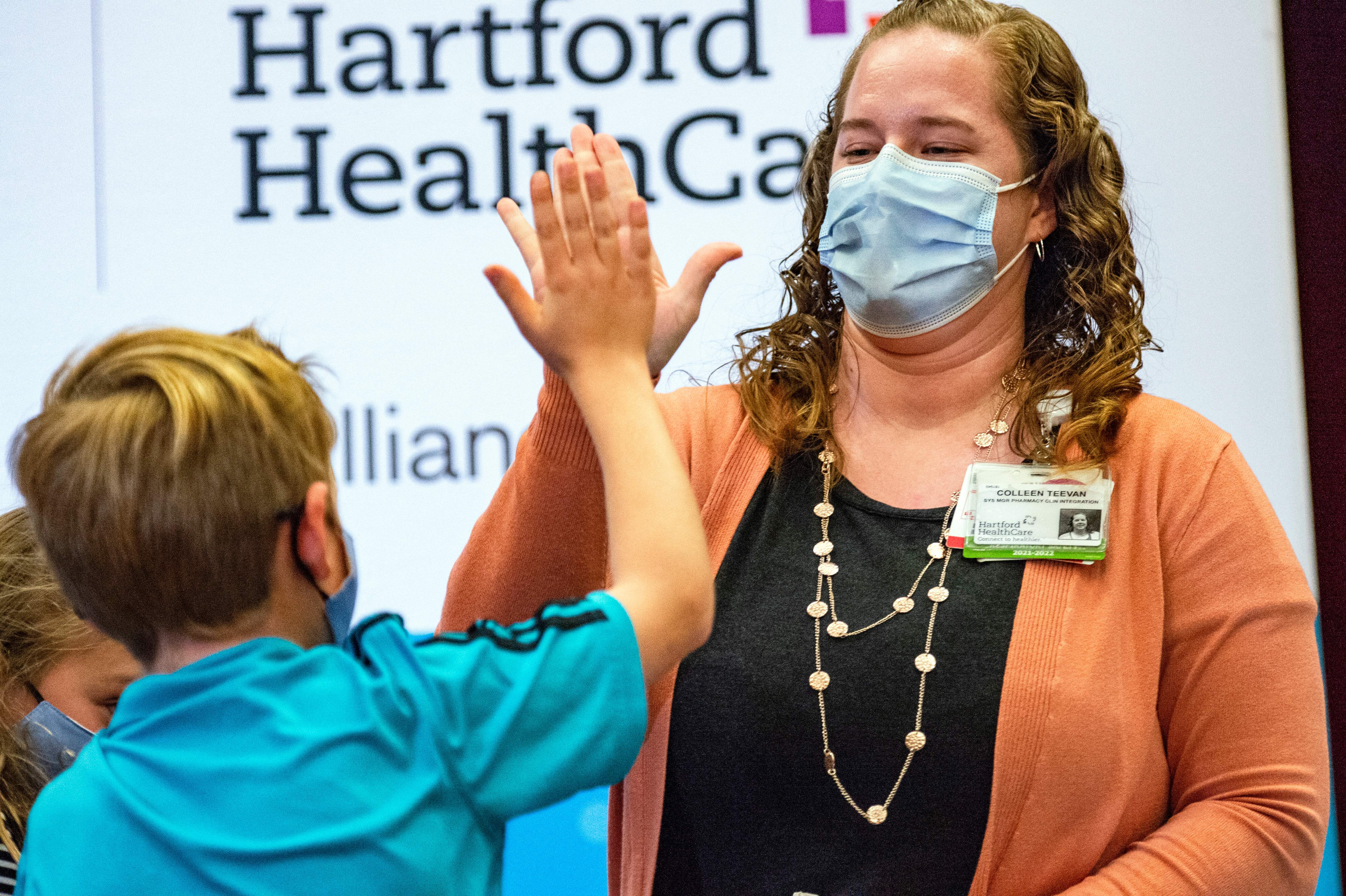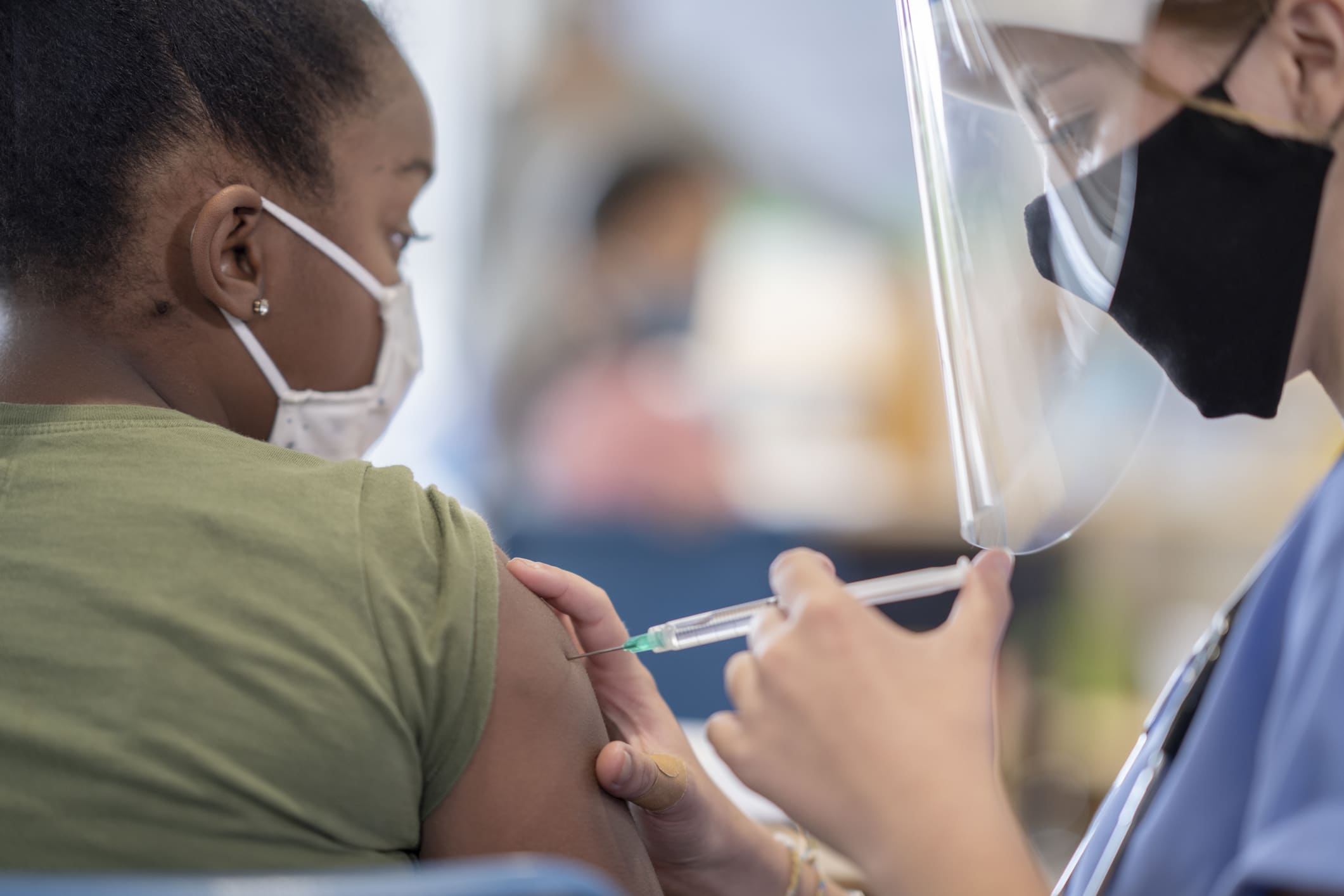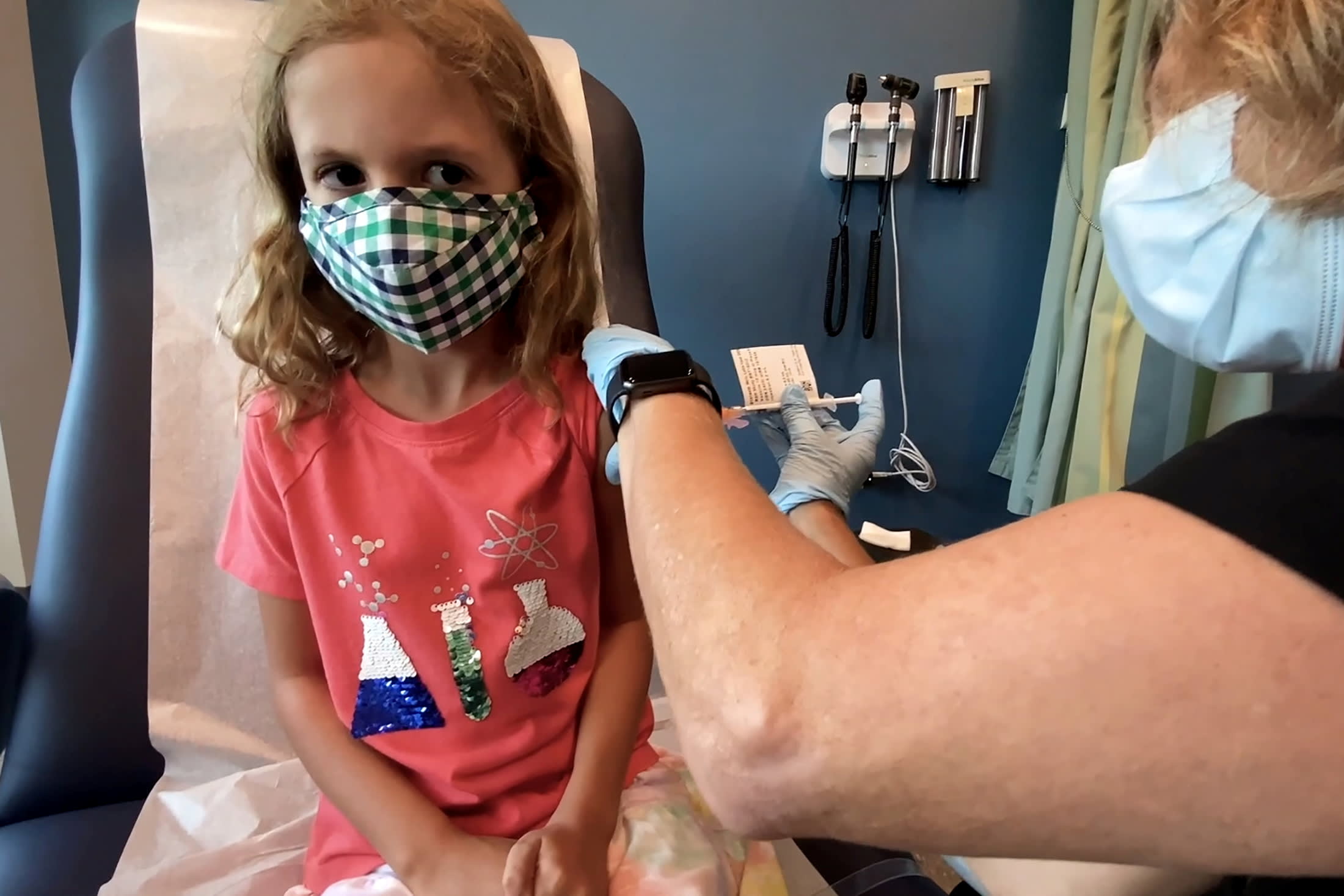Vaccinations finally are available to U.S. children as young as 5, to the relief of some parents even as others have questions or fears.
Late Tuesday, the Centers for Disease Control and Prevention gave the final OK for youngsters ages 5 to 11 to get kid-size doses of the vaccine made by Pfizer and its partner BioNTech. Pediatricians and other doctors' groups praised the move and are gearing up to help families decide whether to vaccinate their children.
The shots could be available as soon as Wednesday and will be offered at pediatricians' offices, clinics and pharmacies. Like COVID-19 vaccines for adults, they are free.
Here are some things to know:
Should elementary school-aged children get vaccinated?
Get Tri-state area news delivered to your inbox. Sign up for NBC New York's News Headlines newsletter.
Yes, according to U.S. health authorities and leading doctors’ groups. Even though the virus tends to be more severe in adults than children, COVID-19 is causing plenty of preventable suffering among youngsters. About 1.9 million kids ages 5 to 11 have been diagnosed with COVID-19. Some 8,300 have been hospitalized, about a third needed intensive care, and at least 94 deaths have been verified.
That’s not counting the risk of a serious complication called multisystem inflammatory syndrome that can hit kids several weeks after they recovered from even a mild infection.
Vaccination also promises to help kids more safely resume school and social activities.
More Kids COVID-19 Vaccine Coverage
Are kid vaccine doses different than adult ones?
Yes. Children ages 5 to 11 will receive a third of the dose given to teens and adults. That’s 10 micrograms per shot for youngsters, compared to 30 micrograms per shot for everyone 12 and older. Like everybody else, the younger kids will get two shots, three weeks apart.
How well do kids' COVID shots work?
In a study, Pfizer’s pediatric vaccine proved nearly 91% effective at preventing symptomatic infection. Vaccinated youngsters developed levels of virus-fighting antibodies as strong as teens and young adults who’d received the full-strength dose.
Are there side effects?
In the trial, the 5- to 11-year-olds had some annoying post-shot reactions, including sore arms and fatigue, similar to teens and young adults but were less likely to have fevers.
Altogether, the study includes 4,600 youngsters, 3,100 of them given the vaccine and the rest dummy shots. The FDA found no safety concerns.
What about rare problems?
Tens of millions of the larger doses have been given safely to Americans 12 and older. One very rare serious side effect has come to light: heart inflammation.
These rare reactions have occurred mostly in young men or teen boys, usually after the second dose, and they tend to recover quickly. To put the risk in context, doctors say COVID-19 infection can cause more serious heart inflammation. One theory is that testosterone and puberty play a role, which is partly why experts expect any risk to younger kids would be even lower.
Which vaccine should my child get if they're turning 12?
CDC said children should get the dose that’s right for their age on the day of vaccination. So if a child gets the 10-microgram dose for the first shot and then turns 12, the second shot should be the 30-microgram dose.
Should I just wait until their 12th birthday so both shots are the bigger dose?
Pediatricians say not to postpone vaccination because the kid-size dose is effective in that age group.
Is the CDC's move a mandate?
No. The CDC has not mandated vaccinations for youngsters but recommended them.
Aren't only some kids at high risk of serious COVID-19?
Nearly 70% of 5- to 11-year-olds hospitalized for COVID-19 have had other medical problems, including obesity and asthma. But sometimes the otherwise healthy get seriously ill, too. And given the profound social, mental health and educational impact the pandemic has had on youngsters, health authorities made clear that all children should be vaccinated.
There also are equity concerns, as more than two-thirds of youngsters who’ve been hospitalized are Black or Hispanic.
What if my child already had COVID?
They still should be vaccinated once they’ve recovered, according to the CDC. It’s clear that prior infection does provide some protection against another bout but that immunity can vary depending on how seriously ill someone was, and how long ago. Studies of adults have found that vaccination after infection can dramatically boost protection.
Is Pfizer's vaccine the only choice for children?
In the U.S., for now, it is.
Moderna’s similar vaccine is used by teens in some other countries and is being tested in younger children but isn’t yet available for Americans under age 18. A few other countries have used other kinds of COVID-19 vaccines in young children, including China, which just began vaccinations for 3-year-olds.
What about vaccinations for U.S. children younger than 5?
Stay tuned: Pfizer and Moderna are testing low doses in babies and preschoolers.
The Associated Press Health and Science Department receives support from the Howard Hughes Medical Institute’s Department of Science Education. The AP is solely responsible for all content.




